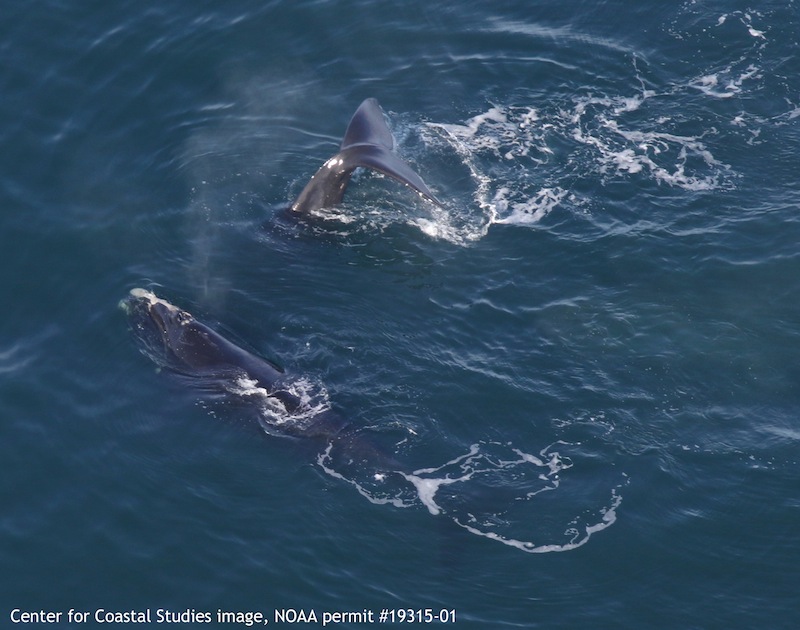Three environmental and animal rights organizations went to court against the federal government last week, claiming that agencies charged with protecting North Atlantic right whales have failed to protect the critically endangered animals from entanglement in lobster fishing gear.
The 33-page civil complaint filed Jan. 18 in U.S. District Court in Washington, D.C., charges that the Department of Commerce and National Marine Fisheries Service (NMFS) have failed to comply with the Endangered Species, Marine Mammal Protection and Administrative Procedure acts “in authorizing and managing the American lobster fishery given the fishery’s ongoing harmful impacts to critically imperiled North Atlantic right whales.”
The complaint asks the court to require the government to put in place mitigation measures to protect right whales from continued entanglements.
Plaintiffs in the case are the Center for Biological Diversity, Defenders of Wildlife and the Humane Society of the United States. Commerce secretary Wilbur Ross, NOAA fisheries assistant administrator Chris Oliver, and National Marine Fisheries Service are also named as defendants.
The lawsuit comes just after the first right whales of the year were seen in Cape Cod Bay.
North Atlantic right whales spend the winter months in the southern Atlantic, migrating north to the ocean off New England and Canada to feed during summer months. The whales are one of the most endangered marine mammals, with an estimated population of 450. Scientists have raised alarm about the fate of the species after at least 17 whales were found dead last year, including three on or near the Vineyard.
In August the string of recent deaths was declared an unusual mortality event and sparked a formal investigation.
Ship strikes and entanglement in fishing gear are the main causes of death for right whales. According to the lawsuit, entanglement accounted for 85 per cent of identified right whale deaths from 2010 to 2016. Entanglements can also injure whales and reduce reproduction rates.
The lobster fishery is the main cause of gear entanglements.
According to the complaint, the NMFS issued a 2014 opinion stating that lobster fishing would likely kill or injure three right whales a year. But the NMFS still concluded that the fishery would not threaten whales existence, the complaint says, calling the decision arbitrary and capricious.
By managing a fishery that results in unsustainable right whale injuries and deaths without any mitigation, the government failed to comply with its own laws, plaintiffs allege.
Despite an NMFS assessment showing that right whales were frequently killed or injured by commercial fishing gear at four times the rate of potential biological removal, the lawsuit says the fisheries service failed to issue emergency regulations provided under the law to protect the whales from entanglement.
The complaint calls for a new Endangered Species Act consultation and for measures to protect right whales from “further painful and deadly entanglements in lobster gear,” among other things.
Meanwhile, in Cape Cod Bay, the Center for Coastal Studies in Provincetown reported finding 14 whales during an aerial survey on Jan. 16. The bay is a popular breeding ground for right whales.
This time of year it is common for the whales to feed close to the sea floor, according to field notes by posted by the center. “What was uncommon about this first survey was finding an aggregation that large in January, and the fact that they were smack in the middle of Cape Cod Bay,” the notes said.
Whales seen last week included a 30-year-old adult female that has been seen in Cape Cod Bay 24 out of a possible 31 years, the center said, making her one of the area’s most frequent known right whale visitors.








Comments (5)
Comments
Comment policy »